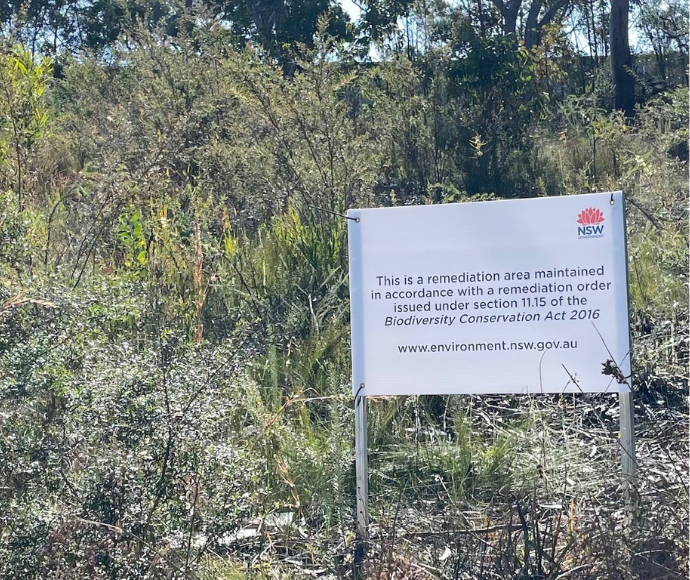Spotlight on environmental Remediation Orders
An audit of Remediation Orders across New South Wales will investigate if landholders have satisfactorily repaired environmental damage and identify opportunities for improved outcomes.
Beginning in July, the Department of Climate Change, Energy, the Environment and Water (DCCEEW) will audit the quality and effectiveness of remediation works for environmental offences, such as illegal clearing of native vegetation.
Remediation Orders are designed to rehabilitate damage to the natural environment and native species. A sample of properties with Remediation Orders will be selected for a desktop review and field inspection as part of the audit.
Remediation Orders are issued by the department under the Biodiversity Conservation Act 2016 and are listed on the public register. The orders are enforced for suitable periods of time, sometimes up to 25 years, to ensure damaged sites are properly regenerated. Actions required of landholders can include removing stock and commercial crops, implementing pest control and replanting native vegetation.
Remediation Orders are one of several tools, including education and engagement, that the department can use to achieve environmental compliance.
Failure to comply with a Remediation Order is an offence under the Biodiversity Conservation Act 2016 and carries court-imposed penalties of up to $660,000 for corporations or $132,000 for individuals. Additional penalties apply for each day the offence continues.
For further information about the department’s regulatory tools and Compliance Policy, visit Compliance and enforcement.
If you are seeking to clear vegetation and need to know the rules, contact your local council (for non-rural zoned land) or Local Land Services office (for rural zoned land) to discuss your options.
For more information about land management, visit NSW Local Land Services.
Quotes attributed to DCCEEW Acting Executive Director Graeme White:
'Our DCCEEW staff will be working with landholders who have been served with a Remediation Order to make sure they understand their ongoing obligations and deliver positive environmental outcomes.
'Remediation Orders are designed to repair harm and enhance environmental and biodiversity outcomes.
'If a landholder has been issued a Remediation Order for an offence, the community expects the harm to be corrected. Landholders who wilfully don't comply with their responsibilities can expect further enforcement action.'
